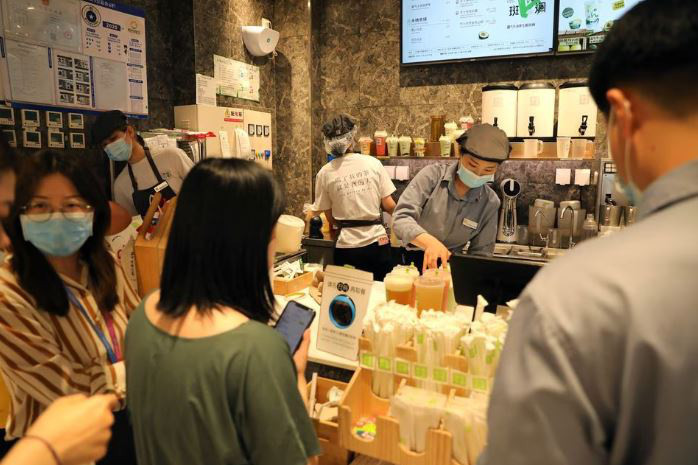A study of 5,281 college students found that bubble tea can be addictive and linked to problems like depression and anxiety.

People wait to buy milk tea at a beverage shop in Beijing, China - Photo: REUTERS
Bubble tea has become very popular in China and other Asian countries in recent years. A new study highlights a worrying link between the drink and mental health problems.
In a study published in the journalJournal of Affective Disorders, researchers from Tsinghua University and the Central University of Finance and Economics (China) surveyed 5,281 university students in Beijing. The results they found were not only real but also related to problems such as depression and anxiety.
"Our findings highlight that bubble tea consumption may lead to addiction and is associated with depression, anxiety and suicidal ideation," the team warned.
When looking at factors such as addiction and persistent cravings, the team found evidence that some young people are showing signs of bubble tea addiction. Nearly half of those surveyed said they drank at least one cup of bubble tea a week.
In addition to added sugar, bubble tea often contains caffeine, which has been linked to depression and social isolation in teens.
The study authors suggest that young people in China and many other countries may use bubble tea as a way to cope and regulate emotions, and that the drink can be as addictive and damaging as social media or drugs.
In the future, they will study on a larger scale and track milk tea consumption over a longer period of time.
The researchers recommend taking precautions against physical and mental problems that may be linked to bubble tea, from obesity and tooth decay to addiction and depression.
According to Tuoi Tre